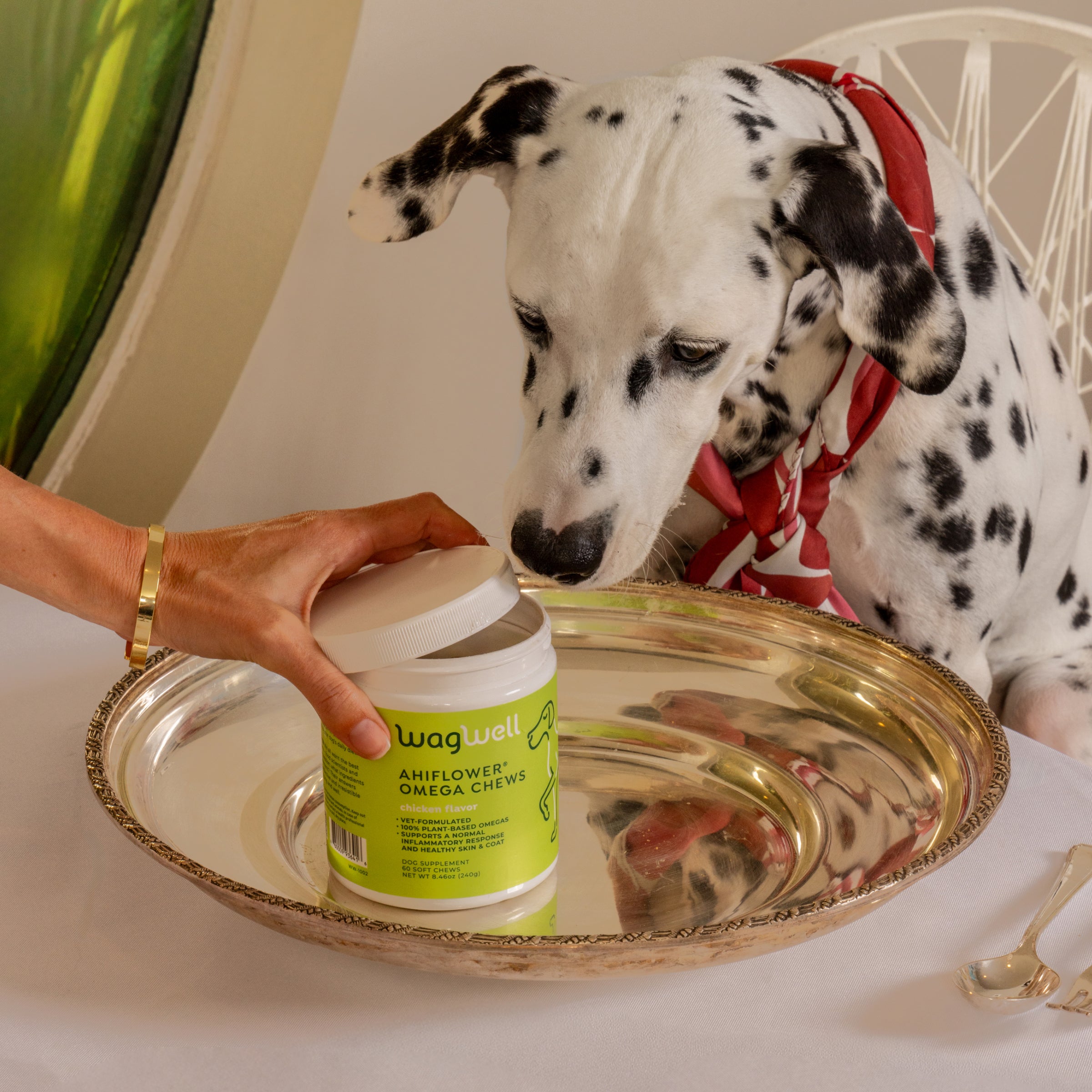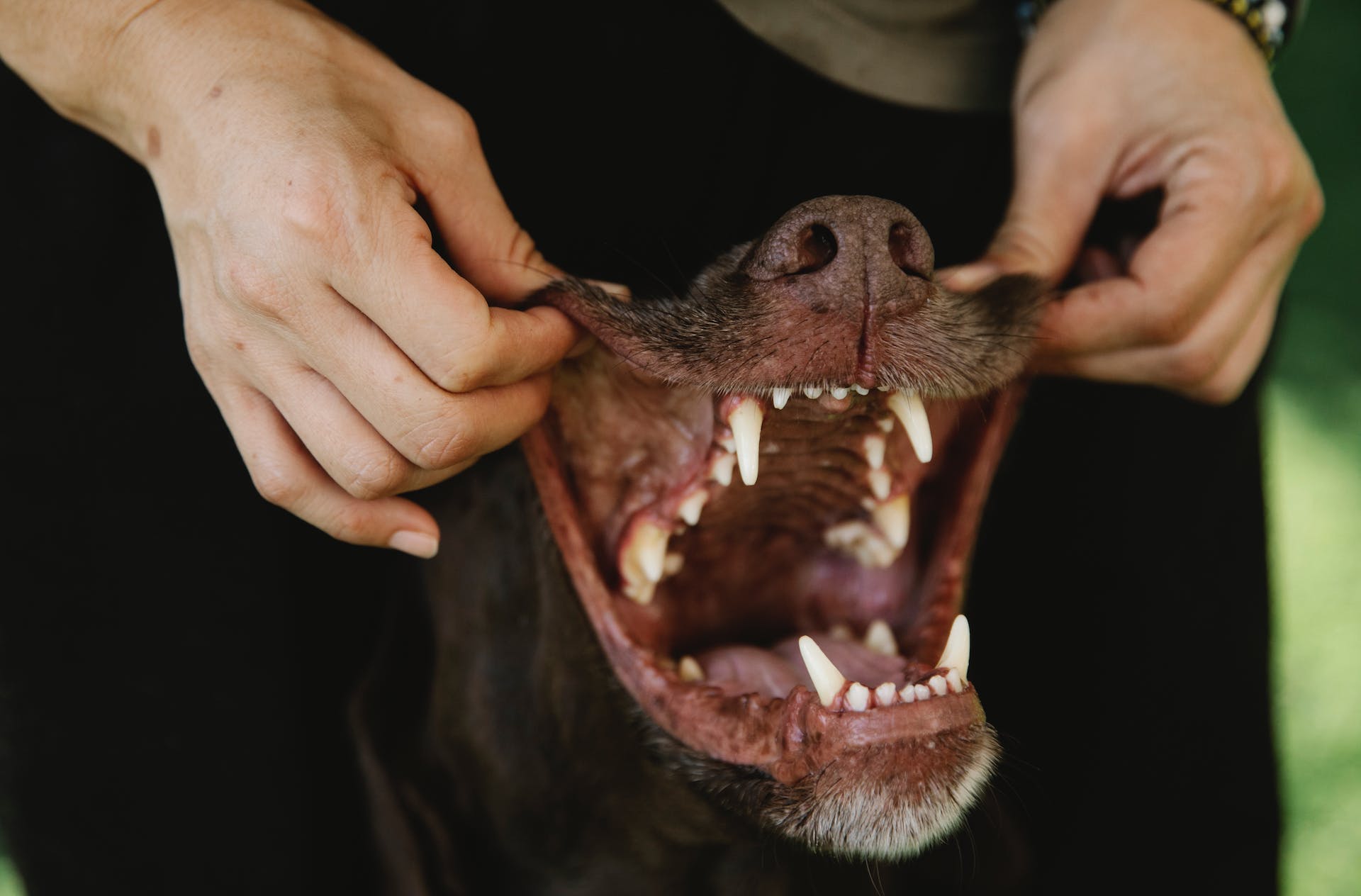Are your dog’s chompers looking a little less than pearly white? Do they suffer from bad breath that just won’t quit? Many pet parents overlook the importance of dental care in their dog’s health plan. Dental health is about more than keeping their breath fresh; it has significant implications for their overall health.
It’s About More Than Their Dental Health
Your pup’s mouth is far more than an apparatus for chomping on their favorite treats or a medium for those adorable wet-nosed kisses. It’s essentially a mirror, reflecting the state of their overall health. Dogs that lack dental hygiene could be paving the way for periodontal disease, a condition characterized by inflammation of the tissues enveloping their teeth.
Not only does periodontal disease lead to a painful loss of teeth, but it also opens the gateway to more serious health complications. Studies suggest a correlation between periodontal disease and heart disease, with the bacteria from the mouth potentially entering the bloodstream and attaching to the arteries surrounding the heart. Similarly, kidney disease can also be a side-effect of poor dental hygiene in dogs, further emphasizing the deep-seated connection between dental health and overall well-being in our furry friends.
Signs of Dental Health Problems
Being a proactive pet parent requires understanding the signs that indicate a possible dental problem in your dog. Recognizing these symptoms early can save your dog from discomfort and prevent further health complications. If your dog has bad breath, it’s more than just unpleasant; it can be a sign of poor dental hygiene or underlying oral diseases. Dogs aren’t typically known for their minty fresh breath, but foul odors can be a warning sign of a problem.
Another tell-tale sign is a change in your dog’s eating habits. If your dog seems uninterested in food, chews on one side, or drops food while eating, it might be due to discomfort from dental issues. Discolored teeth, especially if accompanied by a yellowish crust of tartar at the gum line, are also a cause for concern.
Lastly, bleeding gums or the presence of blood on their dog toys or treats are not to be ignored. It could indicate advanced gum disease, which requires immediate veterinary attention.
Don’t forget to look for signs of discomfort, such as pawing at the mouth, excessive drooling, or a noticeable aversion to having their mouth touched. These signs may suggest your dog is experiencing oral pain.
Regular Check-Ups Are Crucial
Just as you’d schedule your own annual dental exam, your furry friend should be penciled in for regular dental check-ups. Why, you ask? Regular dental exams are vital for maintaining your dog’s oral health. Think of them as preventative maintenance for your pet’s mouth!
A professional dental cleaning can keep your dog’s pearly whites, well, pearly white. Your vet will thoroughly clean your dog’s teeth, removing tartar or plaque that may have accumulated. Not only that, but these visits are the perfect opportunity to spot early signs of oral disease that could potentially become a serious problem if left unchecked.
Consider these dental check-ups the perfect opportunity to discuss any concerns or queries with your vet. Noticed any changes in your dog’s eating habits? Or perhaps they’ve been pawing at their mouth more than usual? This is the perfect time to bring up these concerns.
While at-home care–like brushing your dog’s teeth and providing dental-friendly toys and treats–plays a significant role in your pet’s oral health, nothing beats a deep clean and overall oral health evaluation by a professional. Even if your dog isn’t showing signs of dental problems, it doesn’t mean they aren’t brewing beneath the surface. These check-ups provide a proactive approach to your dog’s dental health.
At-Home Care Routine
Your first step towards achieving dental health perfection is establishing an at-home care routine. Consider taking these steps towards your dog’s dental health.
- You brush yours! What makes you think you shouldn’t brush your dog’s teeth? Brushing can initially seem challenging, but with consistency and patience, your pup will get used to it. Regular brushing can significantly reduce plaque and tartar buildup. Make sure to use toothpaste that is approved for canine use. Human toothpaste can upset their stomachs if consumed (and they’ll definitely eat at least a little bit).
- Incorporate dental-friendly treats and toys into your dog’s playtime. Many treats are designed to scrape plaque from your dog’s teeth as they chew. Many articles recommend rawhide treats for dental health, but you should avoid these. Rawhide is dangerous to dogs as they cannot digest the material, leading to blockages in the intestines.
- Water additives and oral sprays are also worth considering. Adding these products to your dog’s drinking water or spraying directly into their mouth helps break down plaque and freshens their breath.
- Regularly inspect their mouths. Look for abnormalities such as discolored teeth, red or swollen gums, or changes in their breath. You can spot any potential dental problems early on by staying vigilant and seeking timely treatment.
Always remember that maintaining your dog’s dental health at home is not a substitute for professional dental care but rather a crucial addition to their everyday routine. So, while you brush, treat, and inspect, keep up with regular vet appointments for a comprehensive dental health regimen.


